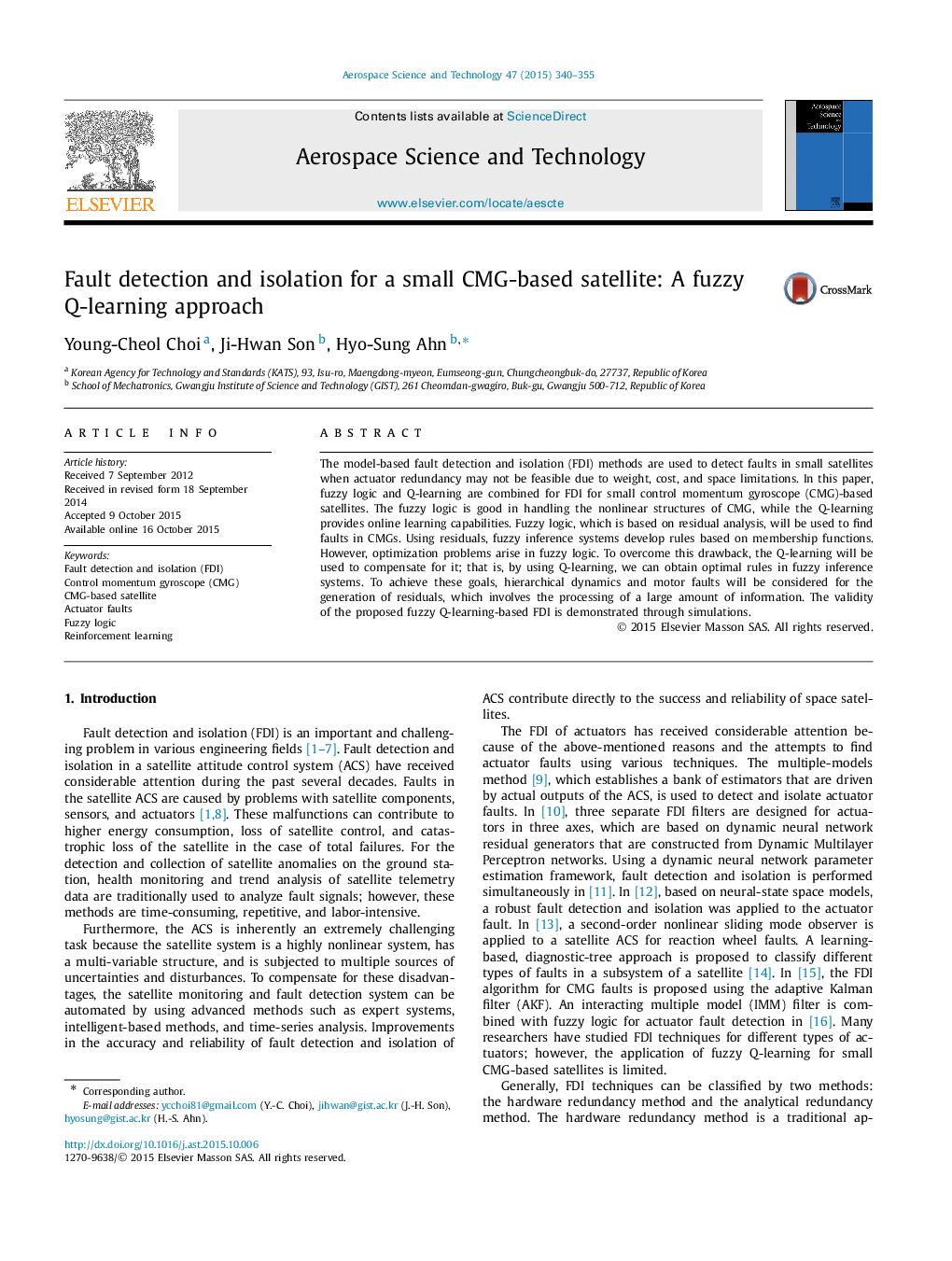| Article ID | Journal | Published Year | Pages | File Type |
|---|---|---|---|---|
| 8058749 | Aerospace Science and Technology | 2015 | 16 Pages |
Abstract
The model-based fault detection and isolation (FDI) methods are used to detect faults in small satellites when actuator redundancy may not be feasible due to weight, cost, and space limitations. In this paper, fuzzy logic and Q-learning are combined for FDI for small control momentum gyroscope (CMG)-based satellites. The fuzzy logic is good in handling the nonlinear structures of CMG, while the Q-learning provides online learning capabilities. Fuzzy logic, which is based on residual analysis, will be used to find faults in CMGs. Using residuals, fuzzy inference systems develop rules based on membership functions. However, optimization problems arise in fuzzy logic. To overcome this drawback, the Q-learning will be used to compensate for it; that is, by using Q-learning, we can obtain optimal rules in fuzzy inference systems. To achieve these goals, hierarchical dynamics and motor faults will be considered for the generation of residuals, which involves the processing of a large amount of information. The validity of the proposed fuzzy Q-learning-based FDI is demonstrated through simulations.
Related Topics
Physical Sciences and Engineering
Engineering
Aerospace Engineering
Authors
Young-Cheol Choi, Ji-Hwan Son, Hyo-Sung Ahn,
